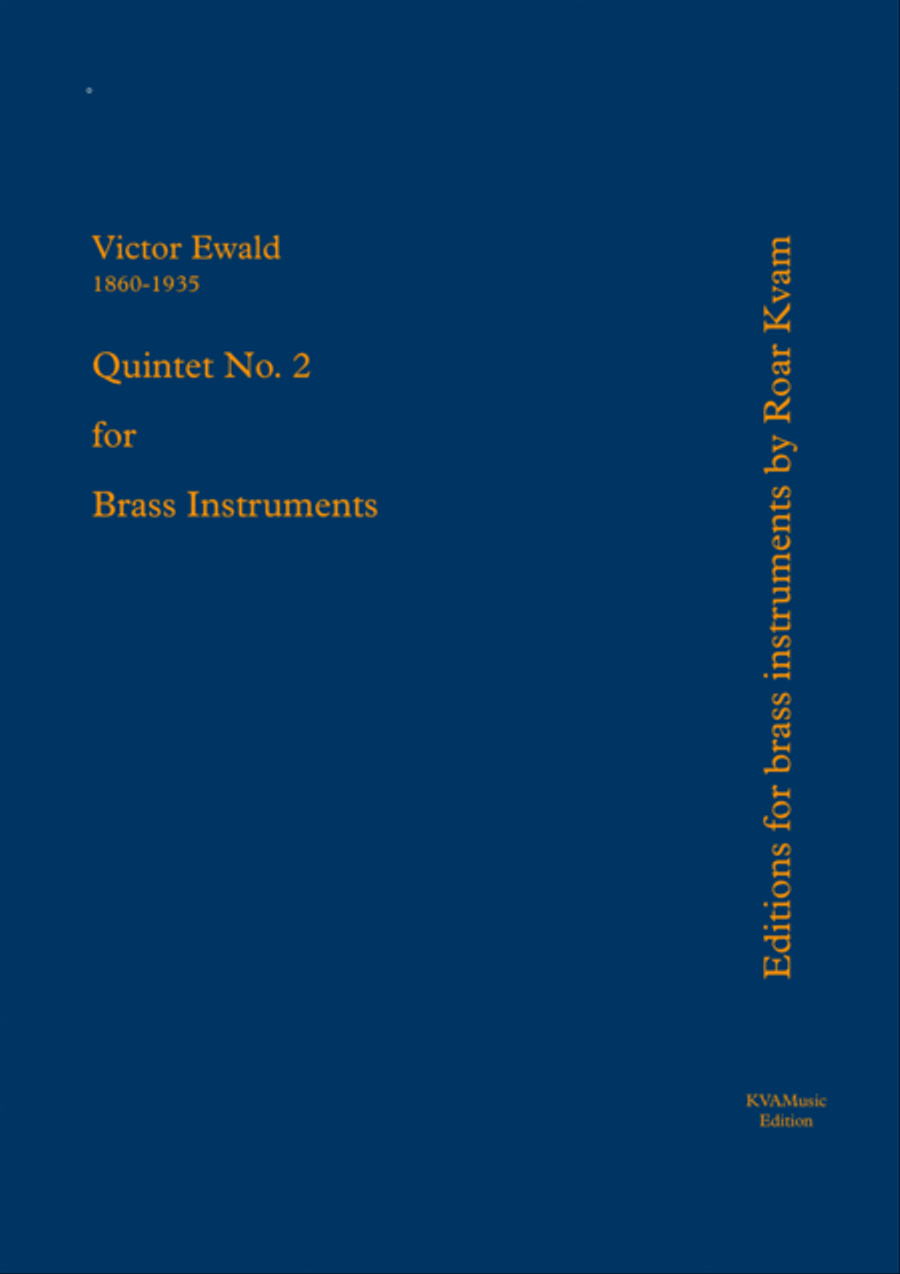Brass Ensemble - Digital Download SKU: A0.768515 Composed by Victor Ewald. Arranged by Edited by Roar Kvam. Romantic Period. Score and parts. 172 pages. KVAMusic Edition #5730965. Published by KVAMusic Edition (A0.768515). Victor Ewald 27 November 1860 - 16 April 1935 Ewald was a Russian composer of music, mainly for conical brass instruments. He was born in Saint Petersburg and died in Leningrad. He also collected and published Russian folk songs. Ewaldâs professional life, like that of many of his musical contemporaries, was in an entirely different field; that of a civil engineer, in which he excelled, being appointed in 1900 as professor and manager of the Faculty of Construction Materials at the Institute of Civil Engineers. Brass players however are indebted to him for something very different â a series of quintets which have become a staple of the repertoire and which represent almost the only, and certainly the most extended examples of original literature in the Romantic style. Ewaldâs formal musical training began in 1872 when he enrolled at the St Petersburg Conservatory at the age of twelve. Founded in 1861 by Anton Rubenstein, this institution was the first of its kind in Russia and it was here that Ewald received lessons in cornet, piano, horn, cello, harmony and composition.As an adult he worked alongside fellow musical nationalists known collectively as the Mighty Handful-Borodin, Mily Balakirev, CeÌsar Cui, Modest Mussorgsky and the most famous of all, Nicolai Rimsky-Korsakov. All of these men had day jobs in non-musical fields. Ewaldâs contributions as a composer reflected an abiding love for brass instruments for which he wrote his quintets scored originally for two cornets, alto horn, baritone horn and tuba. I've edited these four quartets using Ewald's original instrumentation, but there are also separate substitute parts for the modern brass quintet (2 trumpets, horn in F, trombone and tuba).
